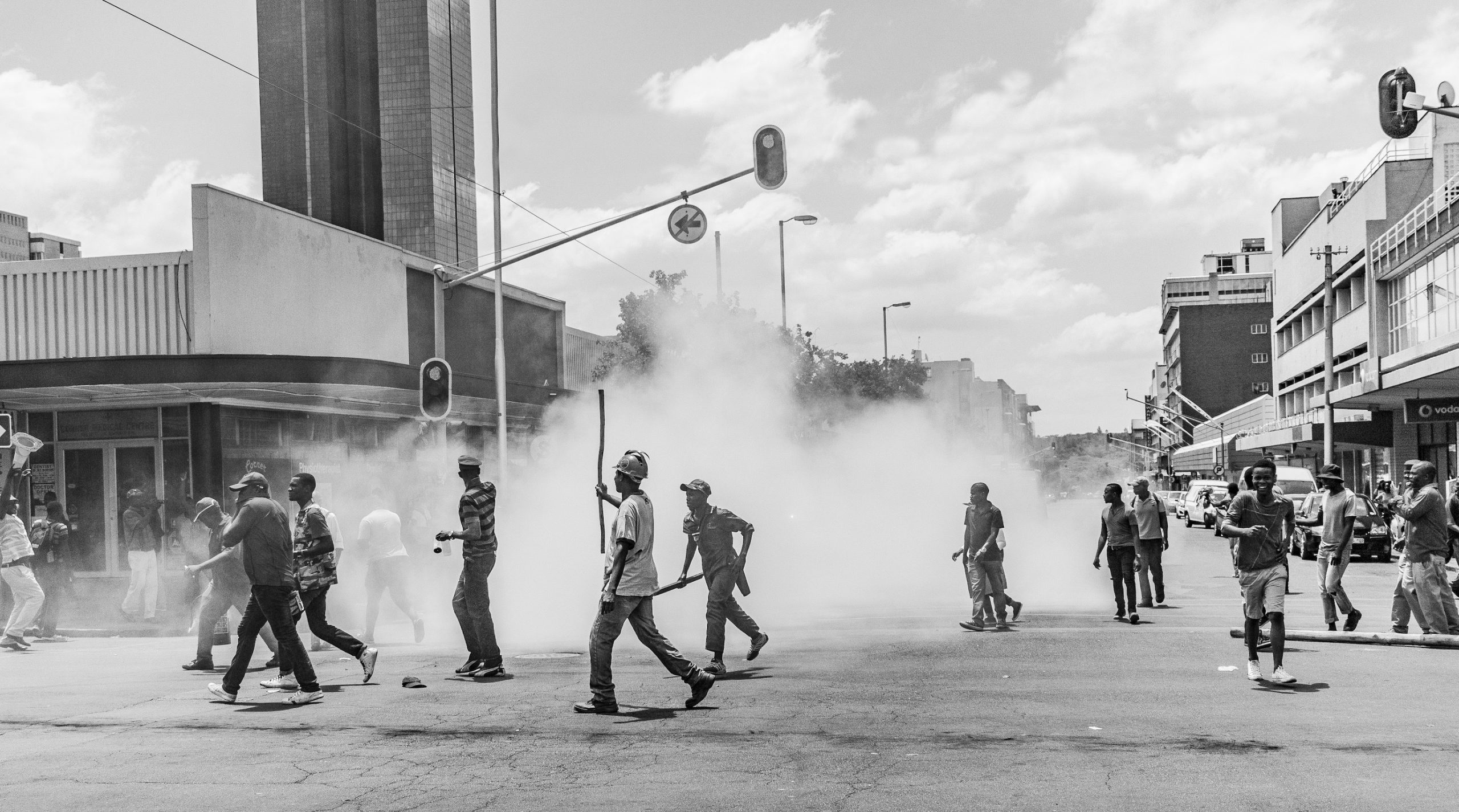This year has seen a wave of demonstrations across Africa, with young people playing an integral role.
Kenya, Nigeria, Uganda, the Democratic Republic of Congo (DRC) and most recently Mozambique have all faced unrest for different reasons.
Social media has played a crucial role in empowering African youth, offering a platform for free speech and global visibility. It has allowed people to document events, share information, and engage in discussions that might not be possible through traditional media channels.
“I love seeing everyone taking action, myself included. My high school classmates and people I know are engaged and keeping the conversation consistent,” said Gīco Ndegwa, a 23-year-old psychology student from Nairobi, Kenya.
However, older generations are more fearful about their involvement. Bridget Walker Muiambo, International public financial management consultant, provided further insights into the situation in Mozambique. She said that young people lack the loyalty and commitment to the Frelimo movement (the Government) than previous generations had. This generation, born after the civil war ended in 1994, has different expectations and experiences than their predecessors.
Ndegwa shared a similar conversation he had with his grandmother in Kenya. His grandmother is supportive of young people’s activism but also fearful, recalling the turmoil following the 1982 coup attempt. “They have never experienced such events, so they’re willing to do whatever it takes,” said Ndegwa.
In Mozambique the protests centre around the newly appointed president amid allegations of vote rigging and the killing of opposition supporters, leading to widespread unrest.
On October 9, Frelimo was declared the winner of the presidential elections with 71% of the vote, despite most of the population expressing their lack of trust in the political party. The result installed the relatively unknown presidential candidate Daniel Chapo as the first president born after independence. His closest challenger was independent candidate Venâncio Mondlane, who received 20%.
In the past few years, Mozambique’s government, led by Frelimo, has become increasingly corrupt. The political party has been in power since the country gained independence from Portuguese colonial rule in 1975.
Opposition parties disputed the results, which were also criticised by international observers from the EU and other organisations, citing several irregularities.
Mondlane, a 50-year-old former radio presenter, called for protests against the election results, leading to widespread demonstrations, bringing the country to a halt for a week.
“This was bound to happen. The only question was how and when, and now the concern is what will happen next,” said Walker.
Africa is rich in mineral resources, yet many countries’ economic and political situations continue to deteriorate. International companies exploit these resources, and politicians reap immense profits while the local population remains in unimaginable poverty.
Essential services have declined, and corruption has left young people fearing for their future. Access to education and healthcare is limited, and many cannot afford these basic necessities. Jobs are scarce, and the prospect of supporting a family seems increasingly bleak.
The situation in Mozambique remains volatile, and with Namibia’s upcoming general elections, it may be the next country to see public outcry over government behaviour.
By Camila Muiambo; originally published in print 22/11/2024

